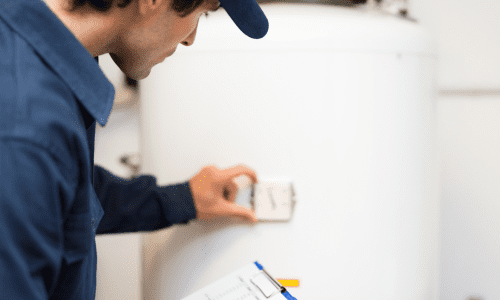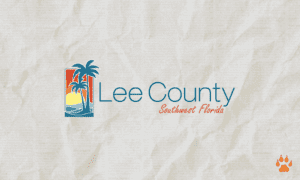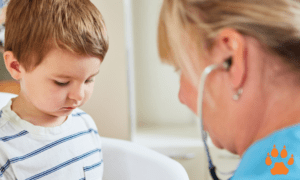By Richard Hume
Snowbirds are advised to winterize their northern homes before heading to Florida. Winterizing includes tasks like cleaning out gutters, weatherstripping windows, insulating pipes and setting the thermostat.
When snowbirds prepare to leave Florida in the spring, they also should “summerize” their homes.
May through October – the period when most seasonal residents are up north – is hot. The UV index hovers between “very high” and “extreme.” It rains a lot. Humidity often exceeds 90%. Critters like ants, mosquitoes and rodents are active. A lot can happen to a home over six months.
When winterizing a home, plumbing systems often are the focus. A frozen pipe can burst and flood an entire property, damaging flooring, furniture and other items. That’s obviously not an issue when “summerizing” a Florida home, but plumbing is still a chief concern. In fact, ignoring plumbing before leaving for the summer can be a costly mistake.
Common Summertime Plumbing Problems
Plumbing can fail even when not in regular use. Seasonal residents never truly know what happened inside
of their Florida home until they return in the fall. Even security cameras inside of a home may not detect a
plumbing issue.
Some of the most common summertime plumbing problems include:
- Faucets: Regular wear and tear, along with faulty seals, can cause faucets to leak. Strong water pressure also is a contributing factor. A faucet that drips once every two seconds, for example, wastes 1,042 gallons of water per year. The U.S. Geological Society even has a Drip Calculator to figure out how much water is wasted with a leaky faucet.
- Appliances: Washing machines and dishwashers are designed to handle hot and cold water, soap bubbles and small pieces of food waste or dirt. Clogged filters, faulty seals, loosened hoses and rusted metal contribute to leaks that grow larger over time.
- Toilets: Toilets are made of strong, durable porcelain. Inside the tank, though, are inexpensive rubber, plastic and metal parts. Faulty flappers and fill valves are leading causes of toilet leaks. If left unchecked for the summer, a toilet running continuously can add thousands of dollars to water and sewer bills.
- Water heater: Sediment and chemical residue can build up inside of a water heater. This is one reason why many older water heaters are not as efficient. Flushing water through the drain valve helps push out any potential debris. Many seasonal residents elect to turn off the circuit breaker to their water heater to save energy costs during the summer.
Whole-Home Inspection
Experienced field technicians help property owners identify issues of concern before they turn into plumbing disasters. The primary goal of an inspection is to preserve and prolong the life of plumbing systems and plumbing-related appliances.
A thorough home inspection checklist covers the following:
- Visually inspect all plumbing components
- Flush water heater to clear sediment
- Check connections, valve and piping to the water heater
- Check aerators for proper water flow
- Inspect all supply lines to faucets and toilets
- Dye-test all toilets for leaks and adjust for proper drainage
- Check all faucets for leaks or corrosion
- Inspect washing machine hoses and shutoffs for signs of damage
- Check all shutoff valves for leaks and proper function
- Identify and tag main water supply shutoff valve
- Inspect all outside hose bibs
After an inspection, technicians will provide recommendations for any immediate repairs, as well as outline repairs that might be necessary down the road. Some homeowner’s insurance policies even specify a to-do list for residents who spend extended periods away from home. Not following the required tasks could invalidate a claim.
Beyond Plumbing
In addition to a plumbing inspection, the pre-departure checklist for seasonal residents also should include these steps:
- Close blinds: Windows are a leading cause of heat gain inside a building. Shutting blinds and curtains helps keep the heat outside, which means your A/C system won’t have to work as hard.
- Set thermostat: Moisture and warmth foster mold and mildew growth. A/C systems are designed to remove humidity from interior spaces. Set the thermostat around 78 to 80 degrees.
- Change air filter: A/C manufacturers recommend changing air filters every three months. Dust, dirt and allergens accumulate even if a home is unoccupied. A clean air filter also helps improve efficiency.
- Patio furniture: Outdoor tables and chairs certainly are no match for hurricanes or tropical storms. Even regular afternoon thunderstorms can pack tropical storm-force winds.
- Unplug appliances: Pull the plug on televisions, cable boxes, computers, clocks, lamps, chargers and small appliances. This protects against phantom power usage and power surges.
- Hire a pest control company: Bugs and critters can find their way through small gaps around the front door, garage door, windows, roof and ventilation systems.
- Hire a landscaping company: Grass grows quickly during the summer, but so do weeds, shrubs and trees.
ABOUT THE AUTHOR
Richard Hume is a Master Plumber and President of Pro-Tec Plumbing & Drains, which he co-founded in 2008 with his brother, Brandon. For more information, please visit at PTPnaples.com or call 239-261-1000.








